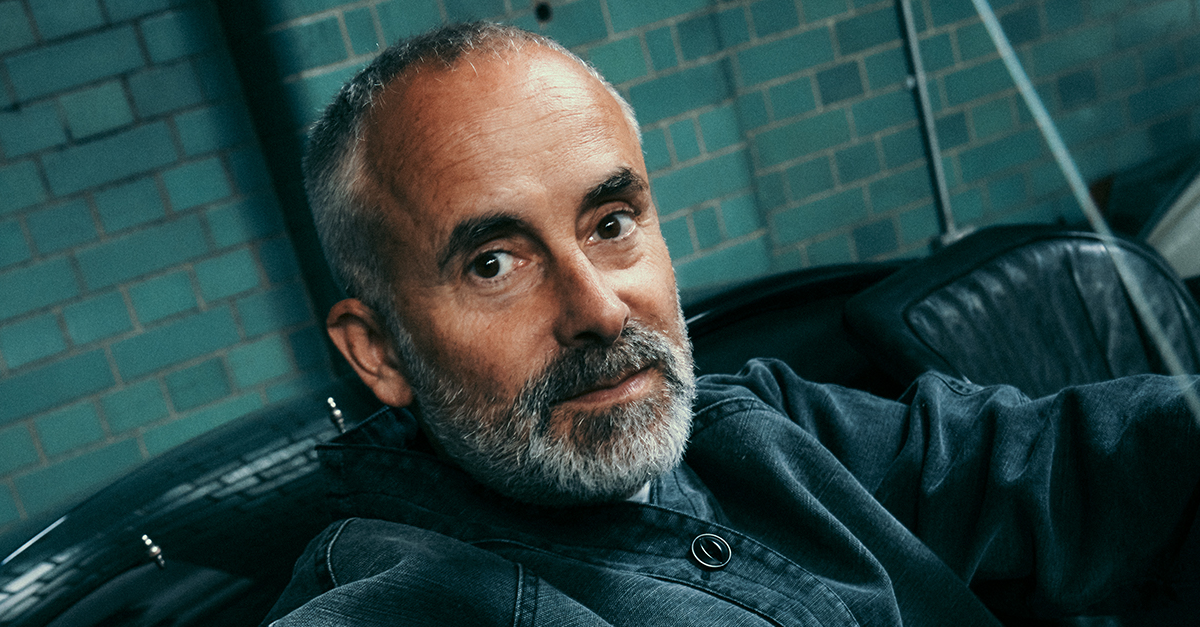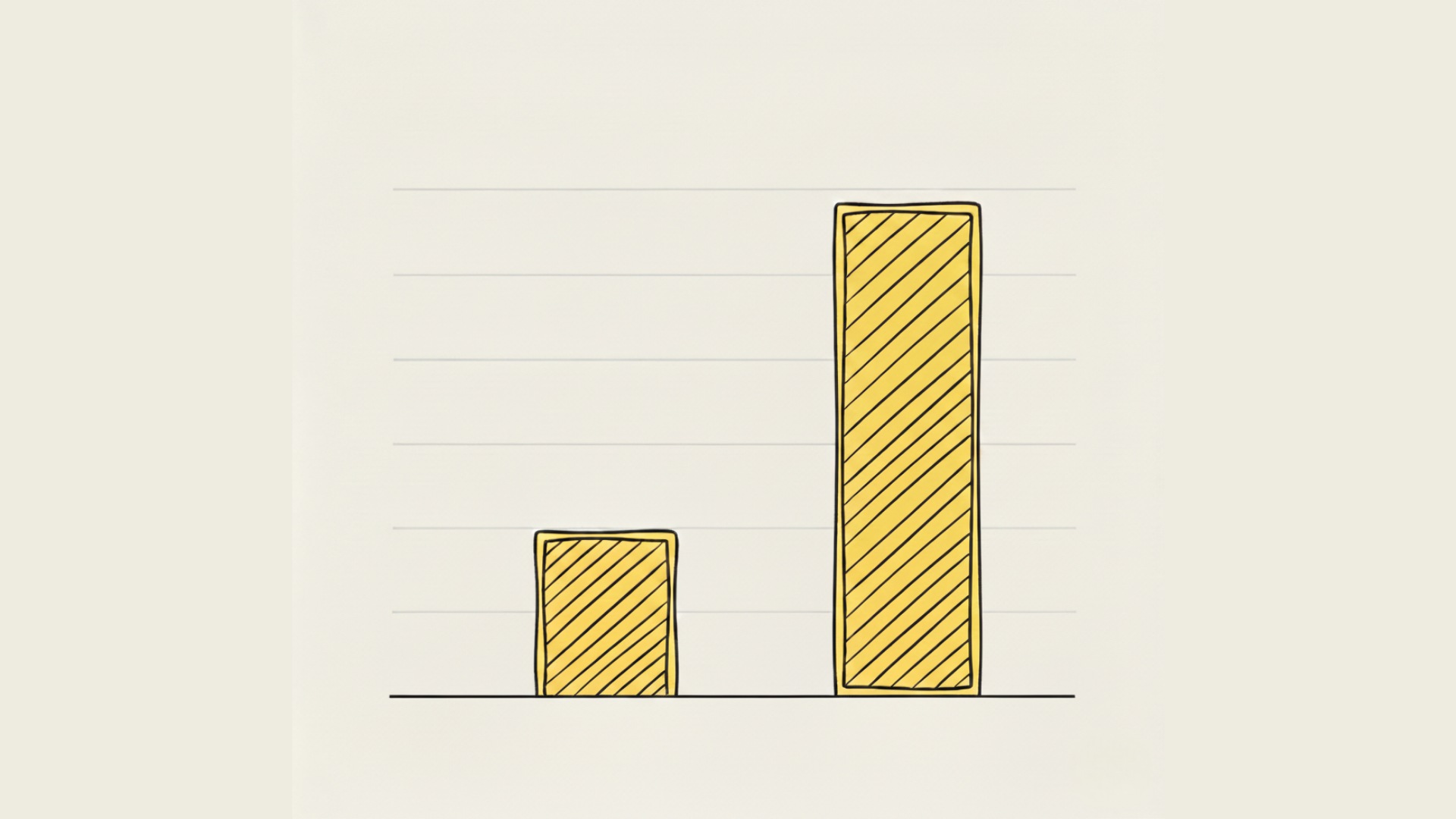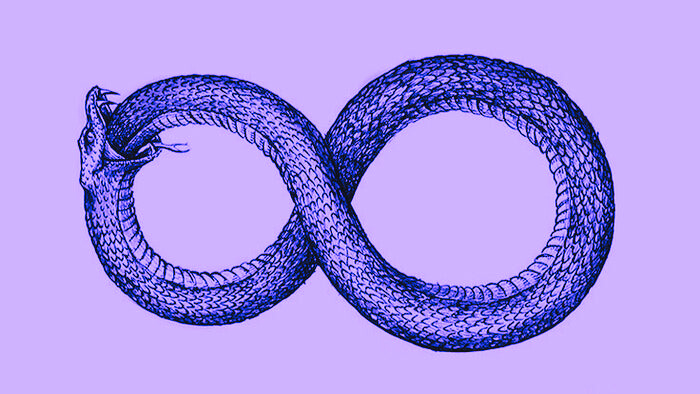Dominic Goldman founded You're the Goods after 25 years in global advertising, working across Asia, the US and the UK. The idea came from a growing frustration with an industry that too often puts profit before product, scale before soul. His new venture was built on a different principle. That quality work, delivered by experienced people, still wins.
"If the work connects, clients come back," Goldman says. "But that only happens when experienced people stay close from day one to delivery. Not just at the start, not just in the room. It's the continuity and care that builds trust. That's when the work gets better."
That belief shapes every part of You're the Goods. The model is rooted in senior involvement. There's no bait and switch. No inflated teams. No layers for the sake of layers. Just a tight group of experienced talent solving real problems and creating work that matters.
At previous agencies, Goldman estimates that senior leadership only touched 10 to 20 percent of the actual creative output. "That always felt backwards. You sell experience, then structure the process in a way that avoids it. You end up managing politics and overheads instead of making great ideas."
Throughout his career, Goldman has seen how the promise of senior talent can sometimes get lost in the structure. "Too often, agencies sell experience but then design processes that push it to the sidelines. You end up managing layers and overheads instead of staying close to the creative. That's not how the best work gets made." He's quick to point out that at places like BBH London, quality was always at the core. "There are brilliant agencies out there that still lead with craft, but the pressure on scale has made that harder to maintain across the board."
Even the agency's name carries deeply personal meaning. It honours Goldman's grandfather, Tiny Bostock, a celebrated 1930s boxer and choir boy trained by local priests. After each victory, Tiny would sing to the fervent crowd of thirty thousand at Old Trafford and proclaim himself "The Goods." That was his declaration of confidence, discipline, and integrity. He raised his family with a clear philosophy: do things properly. Pursue quality above all else. Hone your craft. Work hard. Train hard. Be the Goods. Today, that same ethos defines the heart of You're the Goods—where every project, client and person is held to a standard of creative integrity.
Fewer people, deeper work
You're the Goods works on a value-based model, not a rate card. The focus is on impact, not input. "We don't over-resource to impress," Goldman says. "We go deep with the right people. We stay involved all the way through. That's how the best ideas happen."
He sees a big difference between looking involved and being involved. "A lot of legacy agencies are built to give the appearance of senior talent. But in practice, it's diluted. You pitch with the top team and deliver with juniors. Clients are smart. They see through that."
At You're the Goods, the senior team is the team. The people you meet are the ones solving the problem. That clarity is paying off. Just 18 months in, the agency has picked up two D&AD Pencils, three Cannes Lions shortlists and 2 Golds for its campaign with Papaya. No tricks. Just high-quality work made by experienced hands.
AI without the ego
While some creative leaders are cautious about AI, Goldman sees it as a creative multiplier. "I'm not fearful of it. I'm energised by what it can do. But the tool is not the story. The idea still leads."
The creative tools available today are evolving at remarkable speed—and You're the Goods is fully embracing that. The team regularly explores and integrates new platforms, staying fluid as the landscape shifts. From video generation to sound design to interactive visuals, the ability to concept and present work that feels near-finished gives clients a real sense of what's possible. "The speed we can now move at is incredible," Goldman says. "But what's even more important is who's guiding that process. The ideas still come from experience. It's the people with taste, craft and judgement who shape how the tools are used. That's fundamental."
Goldman is clear that the audience never asks how a piece of work came together. They ask how it makes them feel. What the brand is telling them. Why it stands out. The moment that gets lost, the craft falls flat.
A shift that's already begun
Goldman sees the wider industry in transition. "There's panic in the big networks. Margins are tight. Process is bloated. Craft has taken a back seat. The output is slower. And often, it's just not very good."
At the same time, he sees a wave of talent moving in a different direction. "You've got brilliant people leaving those systems. They're starting smaller shops. They want to get closer to the work again. They want to make things they're proud of."
He doesn't see the future belonging to massive holding companies. He sees a field of specialist outfits. Focused. Independent. More nimble. More present. "You're going to see a lot of smaller studios going deeper with fewer clients. That's where trust lives. That's where the best work comes from."
Longer partnerships. Better outcomes.
Even as a young agency, You're the Goods is already profitable. Its team brings experience across global and local markets, from tech to FMCG, from heritage brands to fast-moving startups. That breadth is part of the value. "We've got people who have seen every shape of brief. Who have navigated real creative challenges. That kind of experience means you move faster. You avoid the noise. You get to something good, quicker."
Success, for Goldman, is about connection and consequence. "If the work creates a reaction, makes people feel something, and drives the brand forward, that's success. That's the ambition every time."
The agency is focused on building long-term relationships. "When you go long with a client, everything gets better. You learn more. You push further. You build something together that lasts."
In a world of short-termism and constantly shifting rosters, You're the Goods offers a model built on clarity, consistency and care. The idea is simple. Keep the teams senior. Keep the work sharp. Stay close. Make it matter.
Goldman also sees the traditional divide between brand and performance as increasingly unhelpful. "Some of the most powerful work we've done lives in both spaces. It builds equity while delivering results," he says. With a background in digital storytelling, he believes the best creative blends emotional connection with commercial impact. "Brand work should perform. Performance work should build the brand. The best ideas do both."
It is a view backed by research like WARC's The Multiplier Effect, which shows creativity delivers most when it works across the entire customer journey.
As the industry recalibrates, Goldman believes the brands that thrive will be the ones who prioritise clarity, consistency and care over scale for its own sake. "It's not about having more people. It's about having the right ones, focused on the right problems, working the right way. That's what drives better outcomes."



.avif)

.png)
.jpg)

